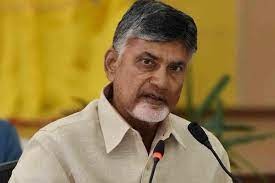The Schedule for PM Modi’s Visit to Srinagar: Development and Tourism Plans, Everything You Should Know
Prime Minister Narendra Modi will attend the “Viksit Bharat Viksit Jammu Kashmir” program and commit Rs 5,000 crore in initiatives to support the agribusiness in Jammu and Kashmir during his first visit to Srinagar after Article 370 was repealed in 2019.

The Bharatiya Janata Party (BJP) estimates that two lakh people would attend the function. Over 50,000 party flags have been flown in all of Srinagar’s main squares, along the roads that lead to the PM’s position. The PM’s address will also be broadcast in Srinagar via LED displays.
Examining the PM’s schedule:
The PM is scheduled to arrive at the Srinagar technical airport around midday.
He will next take a chopper to the Badami Bagh cantonment and go to the headquarters of the Indian Army’s fifteen corps.
His procession will go through urban areas before arriving at Bakshi Stadium, the venue for the event.
After visiting the 15 Corps HQs, the PM will fly back to Delhi via Srinagar Technical Airport.
LARGE DEVELOPMENT
In order to strengthen J&K’s agribusiness, the PM would devote the country to a “Holistic Agriculture Development Programme” worth around Rs 5,000 crore during the program.
Along with dedicating himself to the country, he will initiate several tourism-related projects worth over Rs 1,400 crore under the PRASHAD (Pilgrimage Rejuvenation and Spiritual, Heritage Augmentation Drive) and Swadesh Darshan schemes. One such project is the “Integrated Development of Hazratbal Shrine” in Srinagar.
The PM will also introduce the “Chalo India Global Diaspora Campaign” and the “Dekho Apna Desh People’s Choice Tourist Destination Poll.” Additionally, he will reveal the tourism spots chosen under the Challenge-Based Destination Development (CBDD) Program.
In addition, Modi will meet with recipients of several government programs, such as women achievers, lakhpati didis, farmers, business owners, and others, and he will give appointment orders to around 1,000 newly recruited government employees from Jammu and Kashmir.
The “Holistic Agriculture Development Programme” (HADP) will be dedicated to the country by PM Modi.
In Jammu and Kashmir, the HADP is an integrated program that covers the whole range of operations in the three primary agri-economy domains: livestock husbandry, agriculture, and horticulture. Through the specialized Daksh Kisan site, the initiative is anticipated to provide over 2.5 lakh farmers with skill development. For the benefit of the agricultural community, the initiative will build around 2,000 Kisan Khidmat Ghars and put strong value chains in place.
Boost to Tourism
The Prime Minister will dedicate projects to the country, such as the “Integrated Development of Hazratbal Shrine” in Srinagar, J&K; the Northeast Circuit in Meghalaya; the Rural and Tirthankar Circuit in Bihar; the Spiritual Circuit in Bihar and Rajasthan; the development of Jogulamba Devi Temple in Jogulamba Gadwal District, Telangana; and the development of Amarkantak Temple in Annupur District, Madhya Pradesh.
The “Integrated Development of Hazratbal Shrine” project has been carried out in an attempt to provide pilgrims and visitors to the shrine with top-notch facilities and infrastructure.
The main elements of the project are the site development of the entire area, which includes building the shrine’s boundary wall, lighting the Hazratbal shrine precinct, enhancing the ghats and Devri paths surrounding the shrine, building a Sufi interpretation center, building a tourist facilitation center, installing signage, building a multi-level parking structure, building a public convenience block, and building the shrine’s entrance gateway, among other things.
In addition, 43 initiatives that will expand the nation’s tourism and pilgrimage destinations will be introduced by the prime minister. Key religious locations include the Annavaram Temple in Kakinada, Andhra Pradesh; the Navagraha Temples in Thanjavur, Mayiladuthurai, and Karaikal districts of Tamilnadu and Puducherry; the Sri Chamundeshwari Devi Temple in Mysore, Karnataka; the Karni Mata Mandir in Bikaner, Rajasthan; the Maa Chintpurni Temple in Una, Himachal Pradesh; and the Basilica of Bom Jesus Church in Goa, among other notables.
Mechuka Adventure Park in Arunachal Pradesh; Rural Tourism Cluster Experience at Gunji, Pithoragarh, Uttarakhand; Ecotourism Zone at Ananthagiri Forest, Ananathagiri, Telangana; Meghalayan Age Cave Experience and Waterfall Trails Experience at Sohra, Meghalaya; Reimagining Cinnamara Tea Estate, Jorhat, Assam; Ecotourism Experience at Kanjli Wetland, Kapurthala, Punjab; Julley Leh Biodiversity Park, Leh, et cetera, are some of the other sites and experience centers that are being developed as part of these projects.







